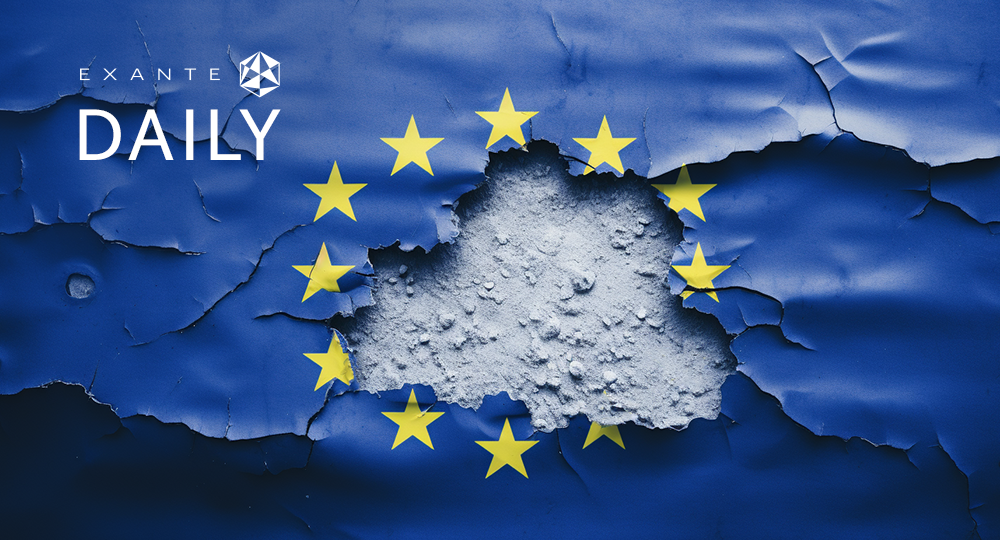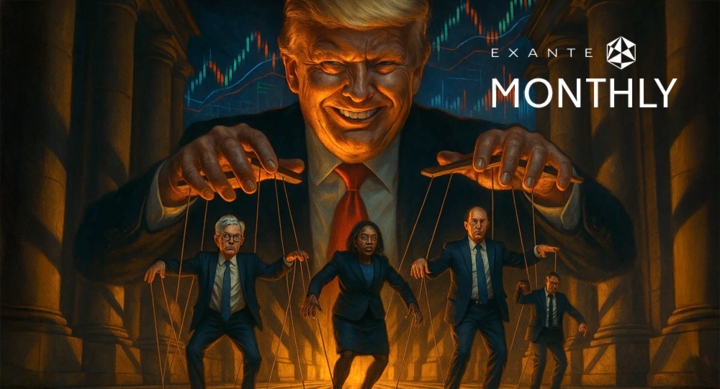Global stock markets have had the worst 6 months on record as investors become increasingly preoccupied with the growing risk of a global recession following central bank actions to tame rising inflation.
- Central banks tightening at all costs
- Global stock markets losing ground
- Worries over debt dynamics
- Further crypto collapse?
US:
S&P 500 is down 20.6 % YTD
Nasdaq is down about 29.5% YTD
Dow Jones is down almost 15% YTD
Europe:
Stoxx 600 is down over 16.5% YTD
DAX is down 19.5% YTD
CAC40 is down 17.2% YTD
IBEX35 is down 7.1% YTD
FTSE MIB is down 22.1% YTD
FTSE100 is down 2.9% YTD
Global:
MSCI World Index is down 21.2% YTD
Bitcoin is down 59.2% YTD
Note: As of 6:30 pm EST 30 June 2022
Central banks on the offensive. On Wednesday, during the ECB’s annual meeting of the world’s central banks, US Fed chairman Jerome Powell said the Fed will not let the economy slip into a "higher inflation regime" even if it means raising interest rates to levels that put growth at risk. ECB President Christine Lagarde said that the low inflation of the pre-pandemic era would not return and that the ECB had to act now because price growth was likely to remain above the 2% target for years to come. Inflation in Spain was at 10%, France at 6.5% and Germany experienced a slight drop to 8.2% in June (from 8.6% in May). The drop in EU unemployment to 6.6% in May (from 6.8% in April), gives the ECB some leeway in terms of growth impact. Central banks are blaming the covid pandemic and the massive geopolitical shock from Russia’s actions in Ukraine. In short, the major global central banks, excluding Japan and China, both of which are still maintaining loose policy, are worried expectations of higher inflation for longer are becoming embedded.
Global stock markets going down. US stocks have lost about $9tn this year, with the S&P 500 experiencing its steepest half year percentage drop since 1970. European shares are looking at their worst quarter since early 2020. However, energy stocks have, unsurprisingly, held up well with petrol, oil and gas prices rising across Europe and the US. Apple is looking to expand its presence with its CarPlay App which will allow users to navigate to a petrol pump and buy straight from a screen on their phones. Healthcare stocks such as Novocure limited, Envista Holdings and Biolase, are also starting to perform better as investors focus on non-cyclicals.
Debt and the cost of finance. Rising sovereign debt levels in some EU countries, due to fiscal support to populations via direct transfers such as lump sum payments to households to pay for energy or cutting of taxes on fuels etc. may be laying the groundwork for another Eurozone debt crisis. Increasingly indebted governments that are experiencing higher borrowing costs as inflation expectations rise and the ECB tightens. To counter this the ECB is stepping back into the market and supplying liquidity but it does leave the ECB vulnerable to criticisms that it is bankrolling governments, possibly resulting in legal challenges from individual member states, particularly Germany. The question for markets will be if the proposed targeted bond buying scheme's size and duration is too small or too big.The Euro fell to a two-week low against the U.S again this past week to below the $1.04 mark.
Crypto bear fighting. According to Bloomberg data, Bitcoin’s drop of approximately 58% this year is the biggest fall since Q3 2011 as it fell from a high of over $67K to below $20K now. The current bear market has resulted in a drop in value of the crypto market to below $1trillion from November 2021’s high of about $3 trillion. Crypto markets are also coming under increasing levels of regulatory scrutiny as central banks now consider these markets a threat to financial stability.
Key data to look out for this coming week
In Europe: On Friday all eyes will be on the first estimate of Eurozone June inflation, HICP data, as the ECB will consider this ahead of its July 21 policy meeting where it promised to hike rates for the first time since 2011. On Wednesday is Eurozone Retail sales data. The European Commission releases its growth forecast on Wednesday. On Thursday the ECB monetary policy meeting accounts will be released.
In the US: On Friday there is ISM manufacturing PMI data. On Tuesday look out for S&P global composite PMI data and on Wednesday ISM Services PMI and ISM services prices paid. All this data will signal whether a slowdown is indeed gaining momentum. Also on Wednesday FOMC minutes will be released; expect a highly volatile market as analysts try to see just how far and fast the Fed will move as we move through the summer into Q4. On Thursday there is ADP employment change as well as initial and continuing jobless claims.
In the UK: On Wednesday there is a speech from the Bank of England’s Chief Economist Huw Pill. Following on from the BoE governor Andrew Bailey’s admission that the UK’s economy is suffering more from the energy crisis than other countries with UK inflation likely to stay higher for longer.
DISCLAIMER: While every effort has been made to verify the accuracy of this information, EXT Ltd. (hereafter known as “EXANTE”) cannot accept any responsibility or liability for reliance by any person on this publication or any of the information, opinions, or conclusions contained in this publication. The findings and views expressed in this publication do not necessarily reflect the views of EXANTE. Any action taken upon the information contained in this publication is strictly at your own risk. EXANTE will not be liable for any loss or damage in connection with this publication.
Questo articolo viene fornito all'utente soltanto a scopo informativo e non deve essere considerato come un'offerta o una sollecitazione di un'offerta di acquisto o di vendita di investimenti o servizi correlati che possono essere qui menzionati.






